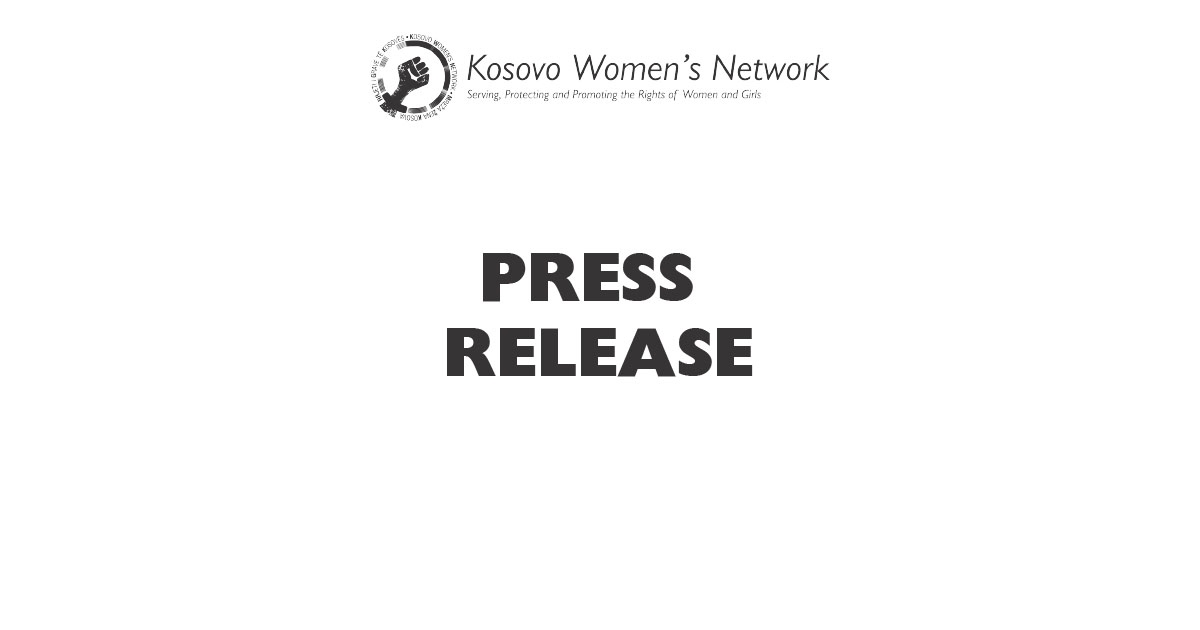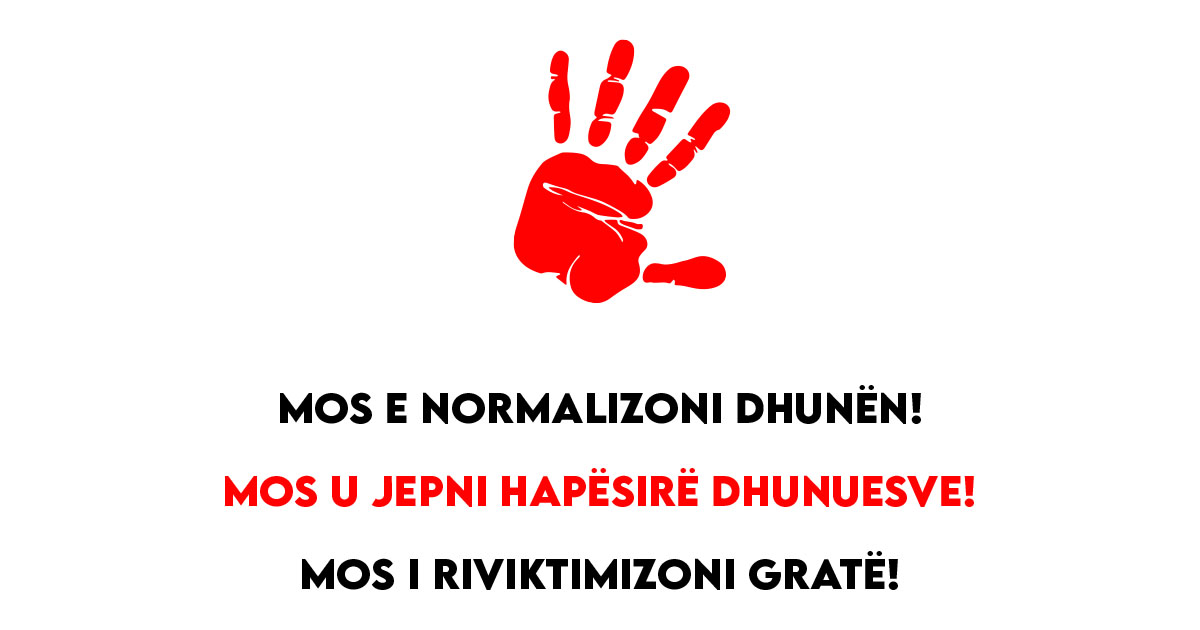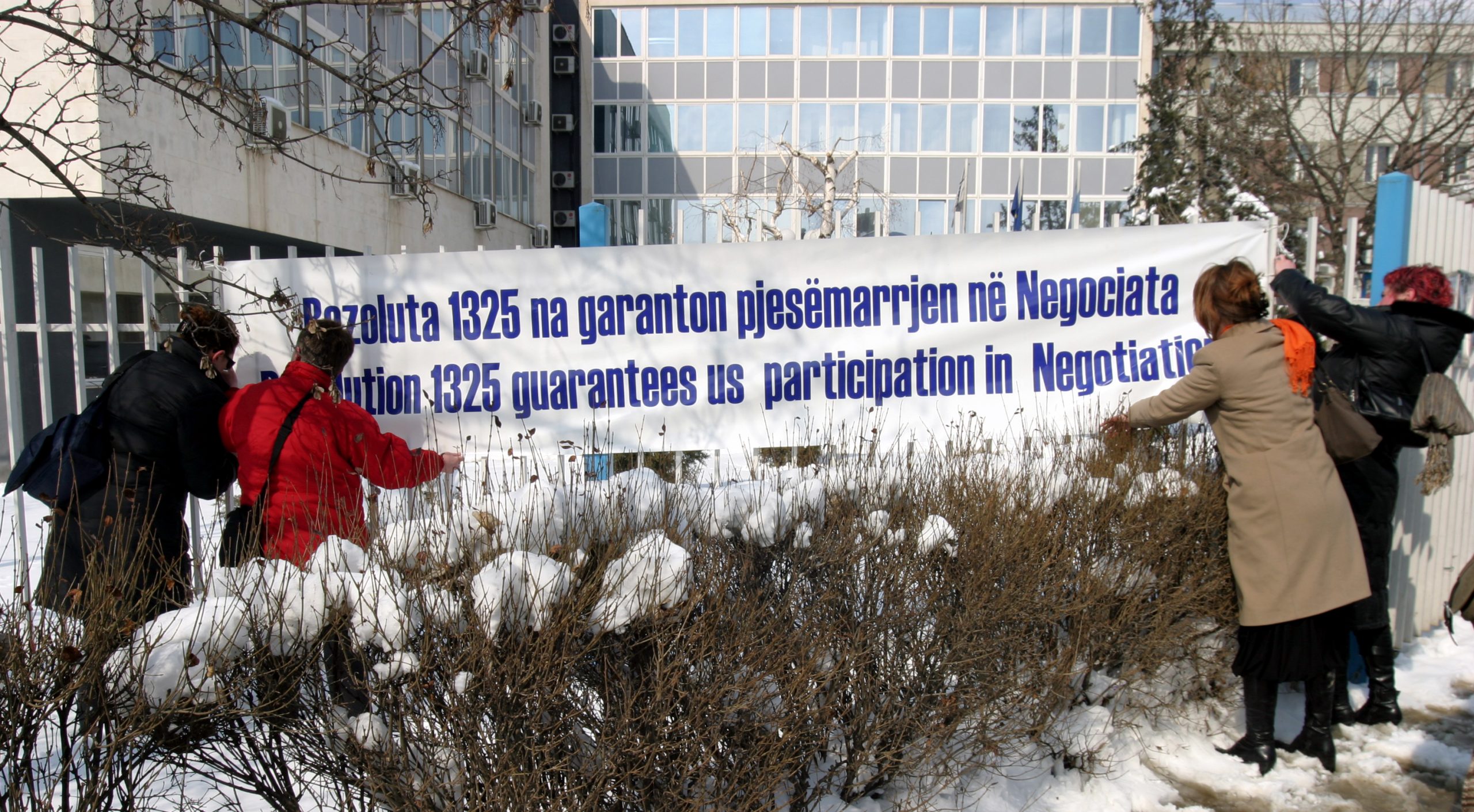Today, June 10, from 10:30 to 12:30, the Kosovo Women’s Network (KWN) presented the reports “Gender-responsive Financing of Personal Assistants for Persons with Disabilities in Kosovo” and “Gender and Disability in EU Law: An Intersectional Approach to Informing Kosovo’s Legal Framework”.
“Gender-responsive Financing of Personal Assistants for Persons with Disabilities in Kosovo” is a policy brief that seeks to inform discussions surrounding important, current political and legal processes, including the forthcoming respective draft laws for Assessment, Recognition of Status, Benefits, and Services for Persons with Disabilities; for Social and Family Services; on amending and supplementing the Law No. 04/L-131 on State Funded Pension Schemes; and annual Kosovo budgets.
Whereas the report “Gender and Disability in EU Law: An Intersectional Approach to Informing Kosovo’s Legal Framework”, provides a summary of policies and analyzes the legal framework of the European Union (EU) regarding disability and gender, presenting recommendations for Kosovo and its legal framework.
In her opening remarks, the Chair of the KWN Board. Nermin Mahmuti said that “Equality means fair treatment for all, giving everyone the same opportunities.” She added: “When we talk about equality, our ultimate goal is justice. The equality is achieved only when everyone gets what they need.”
During this meeting, the main findings and recommendations of the two reports were presented. Part of the discussion were officials from the Ministry of Labor, Finance and Transfers, representatives from the ombudsman institution, representatives of the EU in Kosovo and women’s rights organizations that focus on women with disabilities.
The findings and recommendations of these analyzes were welcomed by the EU Office in Kosovo. The representative of this institution, Jarmo Helppikangas said that “Since the government should make assessments of the impact of gender equality to inform new laws and policies, these documents should provide important support in this regard.”
“The analysis and findings are very timely as they can and should be used to inform future laws that are currently being finalized by the government.” he added.
The recommendations of these two analyzes were also welcomed by the Ministry of Finance, Labor and Transfers, more precisely by the Legal Department for Labor and Social Welfare. Present at the discussion was Mrs. Minire Begaj, Head of the Legal Department for Labor and Social Welfare, MFLT, who congratulated the authors of the two analyzes and said that “These findings and recommendations will be presented to the working group which is drafting the above-mentioned draft laws.”
Key recommendations include:
– Amend existing laws to incorporate consistent, internationally recognized definitions of disability:
• Law No. 02/L-17 on Social and Family Services
• Law No. 2003/23 on Disability Pensions
• Law No. 05/L-021 on the Protection from Discrimination
• Annual Budget Appropriations
– Ensure these use an intersectional approach to gender, attending to intersections with ethnicity, age, and other factors that could hinder access to appropriate care services.
– Prior to amending/adopting, ensure a Gender Equality Impact Assessment is conducted as part of the required Regulatory Impact Assessment included in the Better Regulation Strategy 2.0 for Kosovo.
– Review the eligibility criteria for personal assistance and actual needs.
– Specify in secondary legislation the minimum experience, expertise, and qualifications that personal assistants must have to provide qualified services, such as via obligatory training and qualification testing.
Read the full “Gender-responsive Financing of Personal Assistants for Persons with Disabilities in Kosovo” report, HERE.
Read the full “Gender and Disability in EU Law: An Intersectional Approach to Informing Kosovo’s Legal Framework” report, HERE.
These analyzes are supported by the European Union, as well as the Austrian Development Agency (ADA) and the Swedish International Development Cooperation Agency (Sida).
For media statements on this topic please contact us at media@womensnetwork.org, and ernera@womensnetwork.org.





